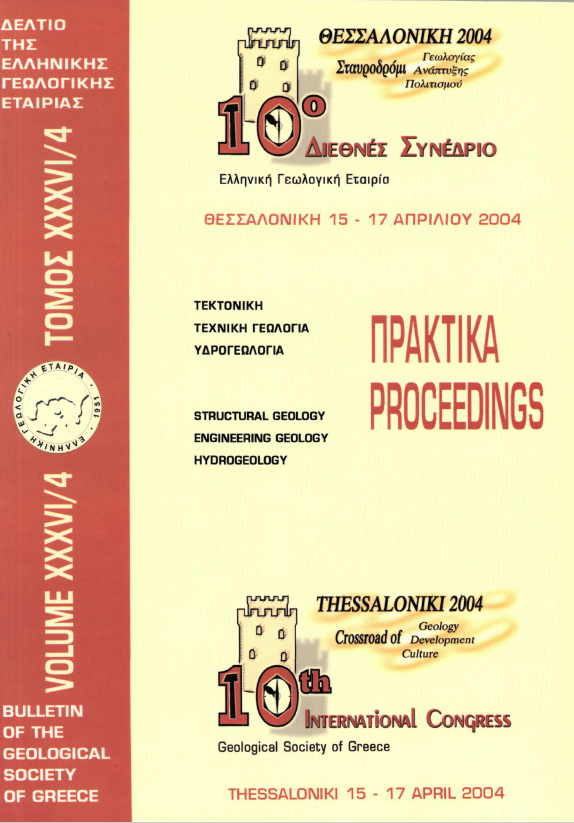APPLICATION OF TRECER METHODS AND HYDROCHEMICAL ANALYSIS ON THE KARST SYSTEM OF Ν . OSSA MOUNTAIN/NE -THESSALY
Résumé
In this paper the hydrogeological conditions of the north part of Ossa mountain are described. The research is focused on the karstic aquifer and the springs of its organic contamination are checked. Hydrochemical methods and tracer methods with NaCI and Uranine as tracers were applied. Regarding the inorganic chemical load, karstic waters show high quality status without any surface loading due to its dilution. Tracer tests reveal high groundwater flow velocity Va values ranging from 82 m/h to 146 m/h due to the intense karst and the existence of caves. Groundwater flow present NE direction and the discharge of karst aquifer take place in the Tempi value. The recorded contamination within the recharge area of the karstic springs is directly connected to anthropogenic impacts and incomplete water collection infrastructure. Actions for the aquifer protection must be taken the soonest possible.
Article Details
- Comment citer
-
Σταμάτης Γ., & Ζαγγανά E. (2004). APPLICATION OF TRECER METHODS AND HYDROCHEMICAL ANALYSIS ON THE KARST SYSTEM OF Ν . OSSA MOUNTAIN/NE -THESSALY. Bulletin of the Geological Society of Greece, 36(4), 2067–2076. https://doi.org/10.12681/bgsg.16706
- Rubrique
- Hydrology and Hydrogeology

Ce travail est disponible sous licence Creative Commons Attribution - Pas d’Utilisation Commerciale 4.0 International.
Authors who publish with this journal agree to the following terms:
Authors retain copyright and grant the journal right of first publication with the work simultaneously licensed under a Creative Commons Attribution Non-Commercial License that allows others to share the work with an acknowledgement of the work's authorship and initial publication in this journal.
Authors are able to enter into separate, additional contractual arrangements for the non-exclusive distribution of the journal's published version of the work (e.g. post it to an institutional repository or publish it in a book), with an acknowledgement of its initial publication in this journal. Authors are permitted and encouraged to post their work online (preferably in institutional repositories or on their website) prior to and during the submission process, as it can lead to productive exchanges, as well as earlier and greater citation of published work.



